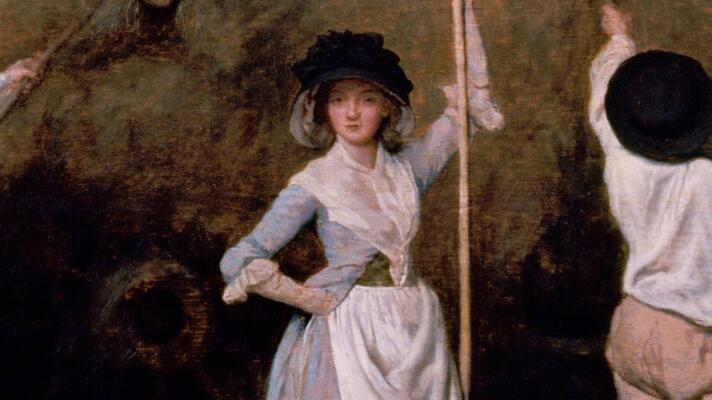Latest Episodes
Victory at Yorktown secures independence. Americans aspire for a more perfect union.
Episode:
S1
E6
The war drags on and moves to new theaters: at sea, in Indian Country, and in the South.
Episode:
S1
E5
Philadelphia falls, but the American victory at Saratoga allows France to enter the war.
Episode:
S1
E4
Washington abandons New York City and flees across New Jersey, before attacking Trenton.
Episode:
S1
E3
Washington takes command of the Continental Army. Congress declares American independence.
Episode:
S1
E2
Political protest escalates into violence. War gives thirteen colonies a common cause.
Episode:
S1
E1
Extras
Thousands poured down the Great Wagon Road, eager to start a new life in North America’s interior.
Clip:
S1
E1
|
2:56
Bostonians protest the newly passed Tea Act by dumping 46 tons of tea into the Boston Harbor.
Clip:
S1
E1
|
9:26
Tensions erupt as colonists confront the British Army at Lexington and Concord, beginning the war.
Clip:
S1
E1
|
11:39
When the British imposed new taxes, women joined the Resistance Movement by the thousands.
Clip:
S1
E1
|
3:11
The American Revolution is not just the start of a nation, but an event that will change the world.
Clip:
S1
E6
|
3:08
George Washington discovers that Benedict Arnold has abandoned his post and defected to the British.
Clip:
S1
E6
|
6:04
Filmmakers discuss how they used stories of both well-known and lesser known figures.
Clip:
10:33
Cherokee chief Tsi'yu-gunsini, Dragging Canoe in English, fights against Patriot settlers.
Clip:
S1
E3
|
5:50
The Continental Congress meets to debate and adopt the Articles of Confederation.
Clip:
S1
E3
|
6:14
General Clinton ambushes George Washington in the largest battle of the American Revolution.
Clip:
S1
E3
|
6:10

WQLN PBS Passport is a member benefit that provides you with extended access to an on-demand library of quality public television programming!












